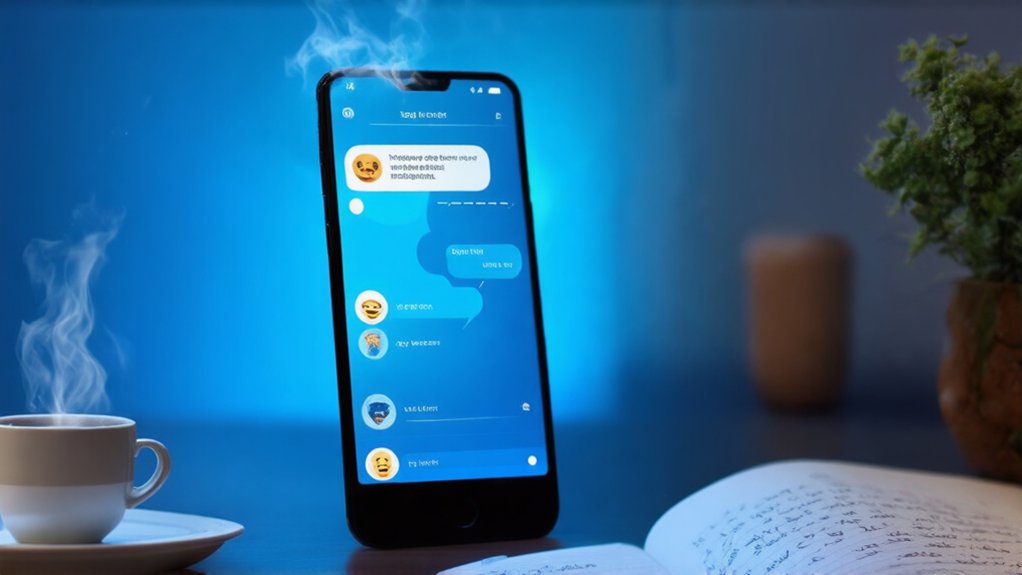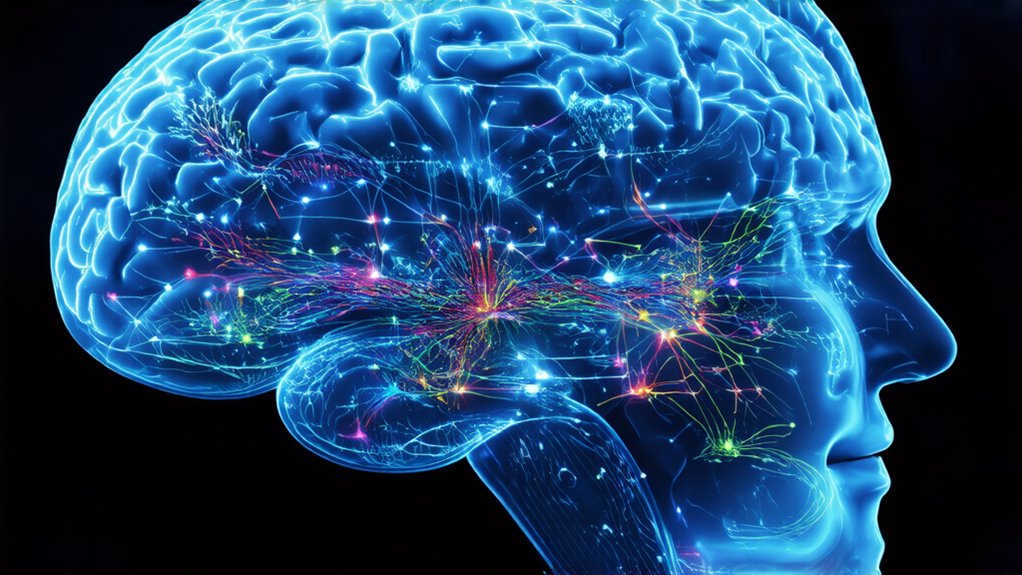While traditional therapy still dominates mental health treatment, AI chatbots are quickly becoming the new digital therapists of our time. These conversational algorithms—with names like Woebot, Wysa, and Replika—are designed to track moods, deliver cognitive behavioral therapy, and offer coping strategies. No couch required.
The accessibility factor is huge. These digital companions are available 24/7, ready to chat when that 3 AM anxiety attack hits. Try getting your human therapist on the phone at that hour. They’re also reaching people in remote areas where the nearest therapist might be two counties over. And let’s face it—they’re cheap. Traditional therapy costs an arm and a leg; chatbots often cost nothing more than your data.
The numbers don’t lie. Studies show these bots actually work. Woebot considerably decreased depression symptoms in college students—not exactly an easy demographic to impress. Therabot reported a 51% reduction in depression symptoms over just eight weeks. Pretty impressive for something without a psychology degree.
Since COVID hit, these digital mind-menders have exploded in popularity. A 2021 survey found 22% of American adults have used mental health chatbots, with 60% jumping on board during the pandemic. Turns out isolation makes people chatty—even with algorithms.
Pandemic loneliness turned millions toward AI therapy—proving we’ll spill our secrets to anyone who listens, even code.
But they’re not perfect. These bots lack genuine empathy—they’re just really good at faking it. They sometimes miss the mark with inappropriate responses or, worse, fail to identify a serious crisis. It’s like getting relationship advice from someone who’s never dated. The best solutions integrate human touch with automation as most patients prefer this combination over purely AI-driven care.
Privacy concerns are real too. Users are sharing their deepest fears with apps that might sell that data tomorrow. The non-judgmental space they provide often leads users to disclose more sensitive information than they might with human therapists. Lack of regulation doesn’t help. Who’s responsible when a chatbot gives harmful advice? Nobody, apparently.
Still, as mental health services remain stretched thin, AI chatbots offer a promising supplement. They won’t replace human therapists, but they’re filling gaps when human connection isn’t available. Or affordable.




